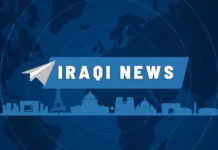Good Morning,
Ripple, Circle, Fidelity Among 6 Crypto Giants Racing for US Bank Charter
Institutional momentum accelerates as crypto firms pursue national regulatory alignment under a newly permissive OCC framework.
Federal Greenlight Incoming: 6 Crypto Banks Await OCC Approval
A major shift in federal crypto regulation is underway as six digital asset firms have applied for national bank charters with the Office of the Comptroller of the Currency (OCC)—a move that would allow them to operate across the U.S. under a single regulatory umbrella.
The pending license applications, publicly listed on the OCC’s site, mark a sharp rise in institutional interest in offering crypto services within the framework of federally chartered banking. The submissions reflect growing industry alignment with national financial infrastructure as digital assets seek full-scale integration into the U.S. financial system.
The Applicants: Crypto and TradFi Heavyweights
The firms seeking a national charter include some of the most prominent names in digital assets and traditional finance:
- Bitgo Bank & Trust, National Association – Application submitted July 14
- Ripple National Trust Bank – Filed July 2
- First National Digital Currency Bank, N.A. – Filed June 30 by Circle Internet Group
- Erebor Bank, N.A. – Filed June 12
- Fidelity Digital Assets, N.A. – Filed June 11
- National Digital Trust Co. – Filed May 28
These proposed banks are structured as national trust banks, a charter that enables them to custody digital assets, issue stablecoins, and interact with public blockchains—all within a regulated environment that permits operations in all 50 states.
OCC Signals Regulatory Shift: Interpretive Letter 1183
The regulatory landscape dramatically changed in March 2025 with the OCC’s release of Interpretive Letter 1183, which eliminated the requirement for “supervisory non-objection” for national banks engaging in digital asset activities such as:
- Custodying crypto assets
- Managing stablecoin reserves
- Running blockchain nodes
This reversal of earlier guidance now formally permits federally chartered institutions to offer crypto-related services without prior case-by-case approval.
In an official statement issued in May, the OCC declared:
“The federal banking system is well positioned to engage in digital asset activities.”
A Turn Away from Caution: OCC Withdraws from Fed/FDIC Crypto Warnings
In another critical development, the OCC has withdrawn its endorsement of prior joint statements with the Federal Reserve and FDIC, which had urged caution on crypto risks and discouraged use of public blockchains.
By stepping back from these earlier risk bulletins, the OCC is positioning itself to encourage responsible innovation, reduce regulatory friction, and standardize oversight across the federal banking system.
Implications: A Unified Path for Crypto Banking
If approved, these charters would allow Ripple, Circle, Fidelity, and others to operate nationally regulated crypto banks, providing services once siloed by state-by-state licensing frameworks.
This convergence of crypto and traditional banking signals a new era of legitimacy, where federally licensed crypto institutions may soon stand alongside legacy banks, backed by OCC oversight, and free to scale nationwide.
@ Newshounds News™
Source: Bitcoin.com
~~~~~~~~~
Rakbank and Bitpanda Launch UAE’s First Bank-Backed Crypto Trading Platform for Retail Customers
Strategic partnership signals UAE’s accelerating push into regulated digital finance, bridging banking and blockchain through mobile-accessible crypto services.
Historic Milestone: Rakbank Becomes First Traditional UAE Bank to Offer Crypto Trading
The National Bank of Ras Al Khaimah (Rakbank) has officially become the first conventional bank in the United Arab Emirates to launch crypto trading for retail clients, in partnership with Bitpanda, a regulated Austrian digital asset infrastructure provider.
Through its mobile banking app, Rakbank now enables customers to buy, sell, and swap cryptocurrencies directly from their dirham-denominated current or savings accounts, eliminating the need for foreign exchange conversions or transfers to external crypto platforms.
This development marks a significant advancement in the UAE’s drive to become a global hub for digital finance, offering fully regulated, bank-backed crypto access for everyday investors.
How It Works: Seamless, AED-Denominated Crypto Brokerage
The crypto service is powered by Bitpanda Broker MENA DMCC, a Dubai-based entity licensed by the Virtual Assets Regulatory Authority (VARA). Bitpanda’s infrastructure enables:
- Real-time crypto trading in AED (United Arab Emirates dirham)
- No foreign exchange or remittance fees
- Custody and execution under regulatory compliance
- Mobile app integration for direct access from Rakbank accounts
By leveraging Bitpanda’s secure backend, Rakbank has removed the complexity traditionally associated with accessing crypto markets, offering a streamlined and compliant digital asset experience.
“We are proud to be the first conventional bank in the UAE to enable simple, secure, and regulated access to a world-class digital assets platform,”
— Raheel Ahmed, Group CEO, Rakbank
Strategic Vision: UAE as a Blockchain and Crypto Hub
The new offering is currently available by invitation only, with a phased public rollout planned in the coming months.
Rakbank’s initiative follows its 2023 partnership with Bitpanda to co-develop a broader digital asset management platform, underscoring the bank’s belief that digital assets represent the future of finance.
“This partnership is a big moment for digital assets in the region,”
— Lukas Enzersdorfer-Konrad, Deputy CEO, Bitpanda
Bitpanda, already working with Deutsche Bank, Raiffeisen Bank, and N26 in Europe, brings global institutional experience to the UAE’s crypto ecosystem.
Regulatory Tailwinds: UAE’s Pro-Crypto Posture Strengthens
Rakbank’s crypto launch coincides with broader moves by UAE authorities to establish the region as a blockchain innovation leader:
- Over 600 crypto companies have registered in the Dubai Multi Commodities Centre free zone.
- The Dubai International Financial Centre (DIFC) and One Central are attracting global digital finance players.
- In June, the Dubai Financial Services Authority (DFSA) approved Ripple’s RLUSD stablecoin, reinforcing confidence in the jurisdiction’s regulatory framework.
Conclusion: A Bank-Led Bridge Between Traditional Finance and Digital Assets
With this move, Rakbank sets a precedent for mainstream crypto adoption via conventional banking, offering UAE residents secure, regulated, and user-friendly access to digital assets—all in local currency and through existing banking relationships.
The Rakbank–Bitpanda collaboration is more than a feature update; it represents a transformative step toward the institutionalization of crypto in the Middle East—where banking and blockchain are no longer siloed, but seamlessly integrated.
@ Newshounds News™
Sources:
~~~~~~~~~
Seeds of Wisdom Team RV Currency Facts Youtube and Rumble
Newshound’s News Telegram Room Link
Follow the Roadmap
Follow the Timeline
Seeds of Wisdom Team™ Website






